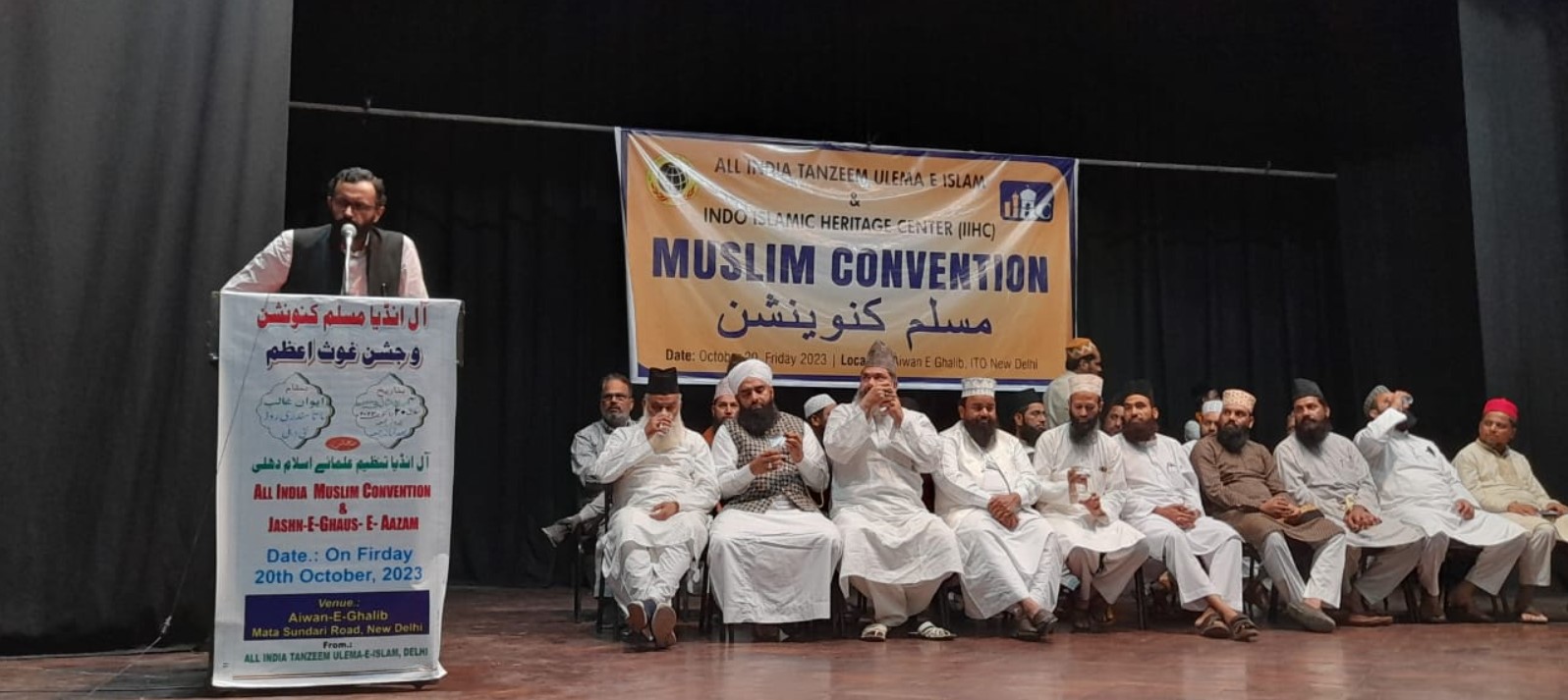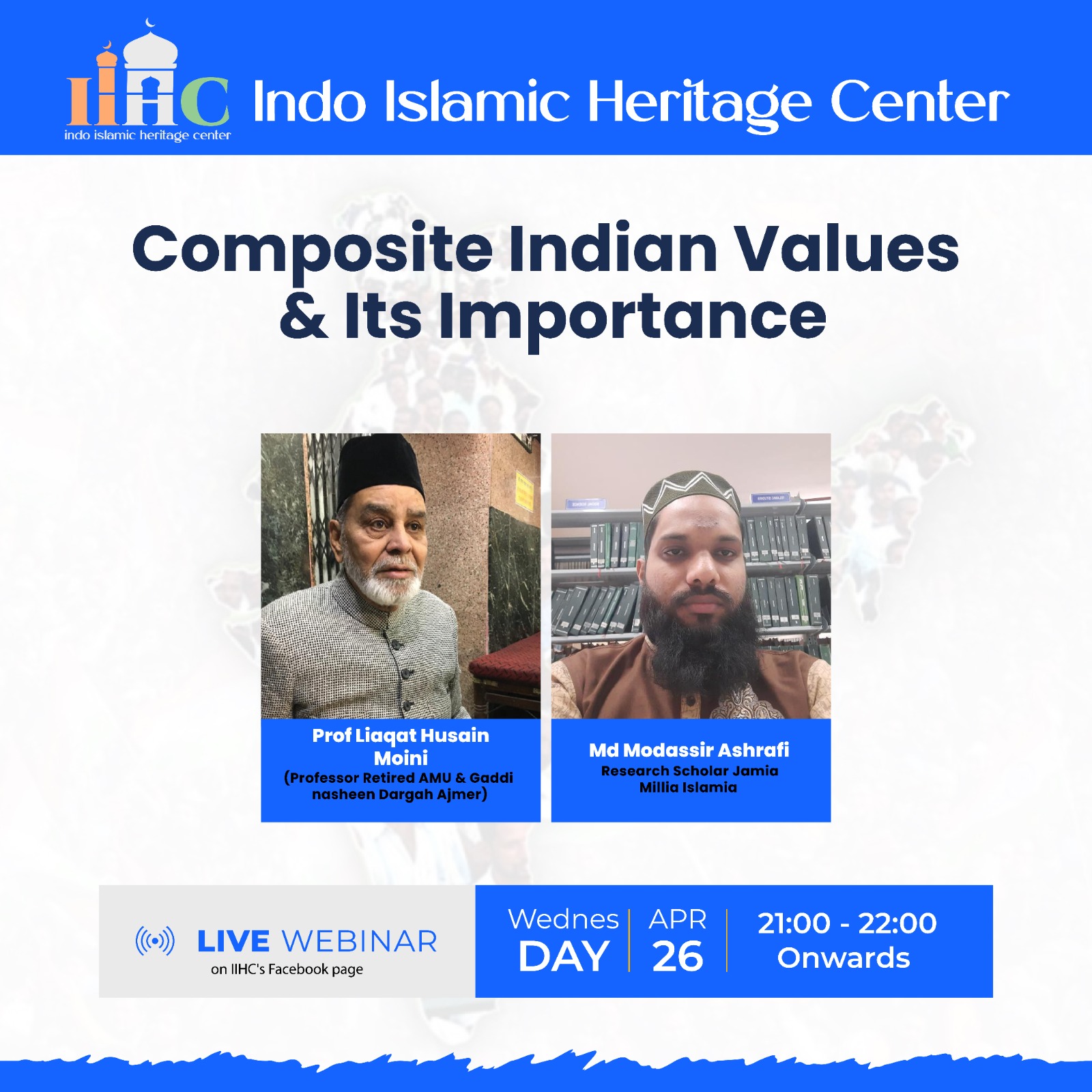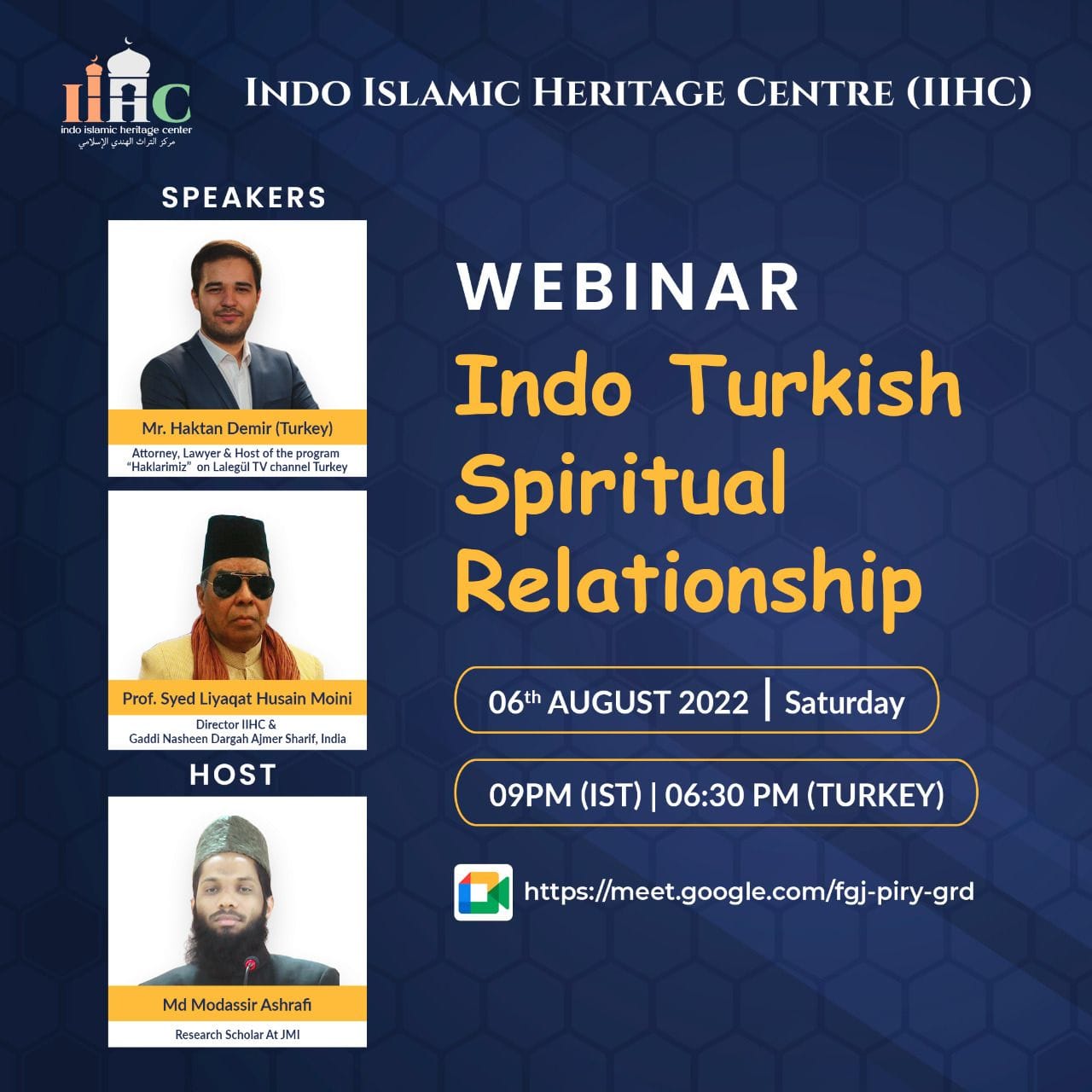Joint India-Bangladesh Conference Highlights Efforts in Countering Radicalism, Advancing Education, and Strengthening Public Relations
New Delhi| The Indo-Islamic Heritage Center (IIHC) recently concluded its groundbreaking international conference in New Delhi, focusing on enhancing ties between India and Bangladesh. Organized in collaboration with Tanzeem Ulama-e-Islam, the conference brought together eminent representatives from both nations, emphasizing the importance of countering radicalism, promoting education, and fostering public relations.
The first session, held at the Ghalib Institute, saw key figures like Bangladesh Islamic Front’s Central Joint Secretary Abdul Rahim and Mohammad Abu Taleb Belal, associate editor of the Bangladeshi newspaper “Dainik Purbodesh” published from Chittagong and principal of City Corporation College, Chattogram, highlighting the significance of Sufi ideology in promoting unity in diversity. Taleb Bilal added that the affinity towards India is evident among the people of Bangladesh, who express a keen interest in visiting Sufi shrines in cities like Ajmer and Delhi. This connection calls for further strengthening and nurturing. Mufti Ashfaq Hussain Qadri stressed the importance of a curriculum promoting liberalism and the Sufi interpretation of Islam to combat fundamentalism in both countries.
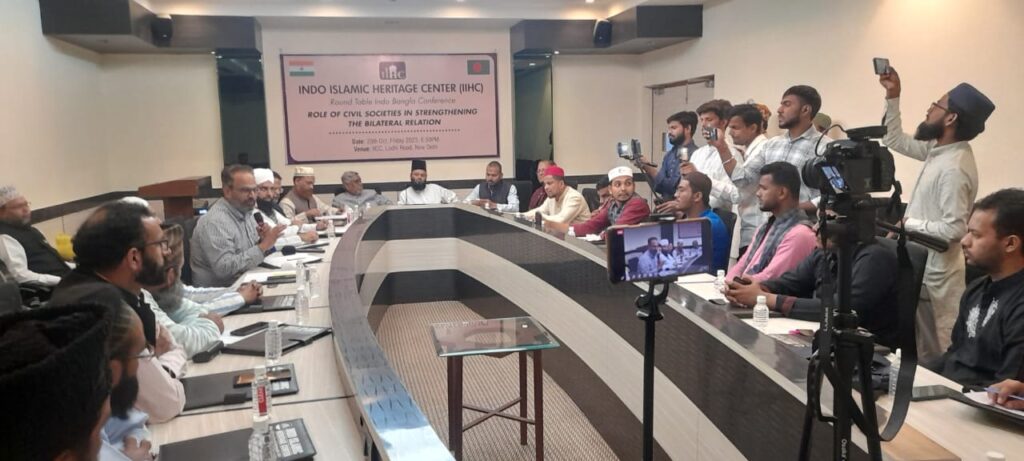
In the second session, organized at the India Islamic Cultural Center, Professor Akhtar Ul Wase highlighted that numerous students from various countries study in Indian Sufi madrassas. He emphasized the importance of enabling children from Bangladesh to also enroll in Indian Sufi madrassas. Such initiatives would empower them to serve as ambassadors of peace, fostering understanding between the two nations.
Imran Hussain Tusar, a Bangladeshi social worker and youth organizer, acknowledged Bangladesh’s struggle with radicalization. He emphasized the longstanding and improved relations between India and Bangladesh since 1971. He expressed gratitude for India’s cooperation and believed that the conference would enhance relations and build confidence, advocating for further collaboration.
Dr. Akhlaq Usmani, an Indian journalism professor, noted that under the leadership of the Narendra Modi government, the business between India and Bangladesh doubled within a year. This increase serves as a testament to the growing affection and trust between the two nations. Furthermore, Assistant Professor Dr. Abdul Wahid Nazir from Jamia Millia Islamia, New Delhi, emphasized India’s comprehensive support to Bangladesh, affirming the potential for mutual progress between the two nations.
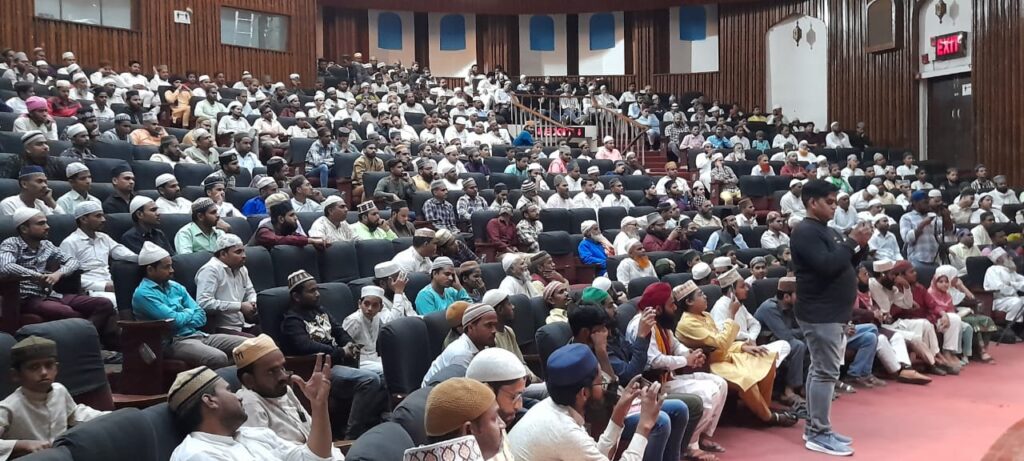
Several key points were discussed during the conference:
- Facilitate training for Bangladeshi children in Indian Sufi Madrasas to familiarize them with the curriculum and management.
- Improve accommodation for Indian students in medical colleges, promoting positive perceptions of Bangladesh and enhancing educational tourism.
- Jointly organize new Darsa Nizami by Tanzeem Ulama-e-Islam and India Islamic Cultural Center to support the curriculum of Sufi Madrasas in Bangladesh.
- Streamline visa procedures and establish bus routes from Bangladesh to India’s Sufi circuit, encouraging religious tourism and strengthening cultural ties.
- Promote student exchanges between Bangladesh and India through government and non-government initiatives, fostering trust among the people of both nations.
- Provide information boards and website details in Bengali language in Indian hospitals for patients from Bangladesh, along with organizing Bengali language training for hospital staff.
The conference, moderated by Zafaruddin Barkati, Research Fellow at IIHC, aimed to address the challenges posed by religious extremism and terrorism in both countries. The discussions emphasized the shared cultural heritage and mutual cooperation, paving the way for a stronger and harmonious relationship between India and Bangladesh.


